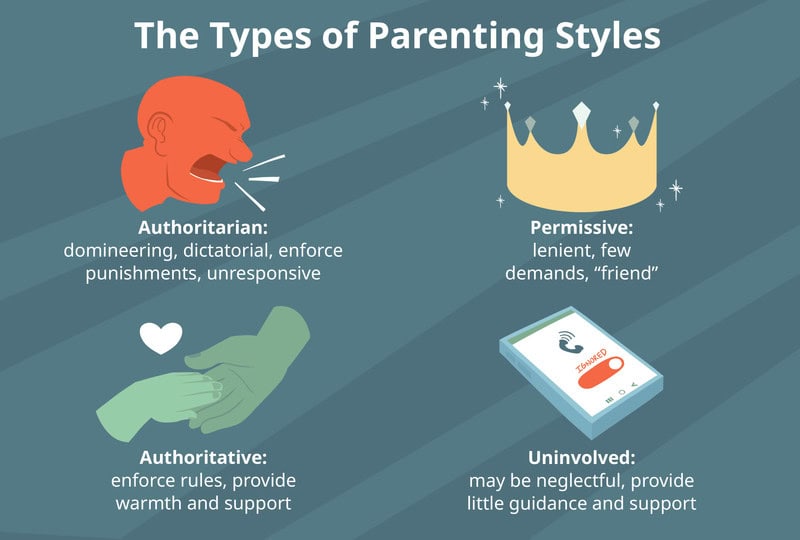Co-parenting can be challenging, yet it holds the potential to build resilience and strength in children. Successfully navigating these hurdles not only supports child development but also reinforces positive family dynamics. Here, we explore 10 common co-parenting challenges and how overcoming them can lead to stronger, more adaptable kids.
1. Balancing Different Parenting Styles

Co-parenting often involves merging two distinct parenting styles, which can initially pose challenges. One parent might be more lenient, while the other enforces strict rules. Finding a middle ground requires patience and compromise.
By navigating these differences, children learn the value of diverse perspectives. They witness conflict resolution in action, which is a valuable life skill.
This dynamic teaches them adaptability and understanding, reinforcing that different approaches can lead to successful outcomes.
2. Handling Communication Breakdowns

Effective communication is crucial in co-parenting, yet misunderstandings can occur. Emotional tension or misinterpretation of messages might lead to breakdowns.
Addressing these challenges openly is key. It provides children a model of constructive communication and problem-solving.
They learn to value honesty and patience, understanding that resolving conflicts requires effort and dialogue.
3. Managing Transitions Between Homes

Switching between homes can be unsettling for children. They need time to adjust to different environments and rules. Parents must ensure these transitions are smooth.
Consistency and routines help immensely. Children learn to adapt to change while feeling secure in both homes.
This builds resilience and flexibility, vital traits for their personal growth and future challenges.
4. Dealing with Emotional Stress

Co-parenting can bring emotional stress, affecting both parents and children. Recognizing and addressing these feelings is essential.
Open discussions about emotions foster a supportive environment. Children learn to express their feelings and understand others’.
This emotional intelligence is crucial, teaching empathy and the importance of mental well-being.
5. Agreeing on Disciplinary Actions

Disciplinary approaches can differ greatly between parents, leading to potential conflict. Finding a unified strategy is important.
When parents agree on rules and consequences, it provides consistency for the child. They understand expectations and learn accountability.
This cooperative approach teaches them the importance of teamwork and united decision-making.
6. Navigating New Relationships

Introducing new relationships into the family dynamic can be complex. Children might feel uncertain or threatened by new partners or step-siblings.
Building trust and allowing time for adjustment is key. Parents should foster open dialogues, reassuring children of their place in the family.
This experience teaches adaptability and acceptance of change, essential life skills for their future.
7. Handling Financial Disagreements

Financial disagreements can arise, influencing co-parenting dynamics. Budgeting for expenses like education or extracurriculars requires collaboration.
Discussing financial priorities openly ensures transparency and fairness. Children learn the importance of financial literacy and planning.
They see how cooperation in financial matters leads to a stable and supportive family environment.
8. Maintaining Consistent Routines

Consistency in routines provides children with a sense of security. Variations between homes can create confusion.
Parents should coordinate schedules to maintain consistency, such as bedtime or study hours. This stability helps children thrive.
They learn the importance of structure and time management, essential skills for their personal and academic success.
9. Coping with Legal Challenges

Legal issues can complicate co-parenting, adding stress for both parents and children. Navigating custody arrangements or child support requires careful handling.
Understanding legal responsibilities and rights fosters respect for the law. Children learn the importance of advocacy and informed decision-making.
They witness the significance of cooperation and calm negotiation in resolving legal matters.
10. Ensuring Equal Parenting Time

Balancing parenting time fairly is crucial yet challenging. Children benefit from quality time with both parents, fostering deep connections.
Flexibility and understanding are key to managing schedules that allow equal time. This promotes a sense of belonging and security.
It teaches children the value of equitable relationships and prioritizing family bonds.

Well, hello there!
My name is Jennifer. Besides being an orthodontist, I am a mother to 3 playful boys. In this motherhood journey, I can say I will never know everything. That’s why I always strive to read a lot, and that’s why I started writing about all the smithereens I came across so that you can have everything in one place! Enjoy and stay positive; you’ve got this!

